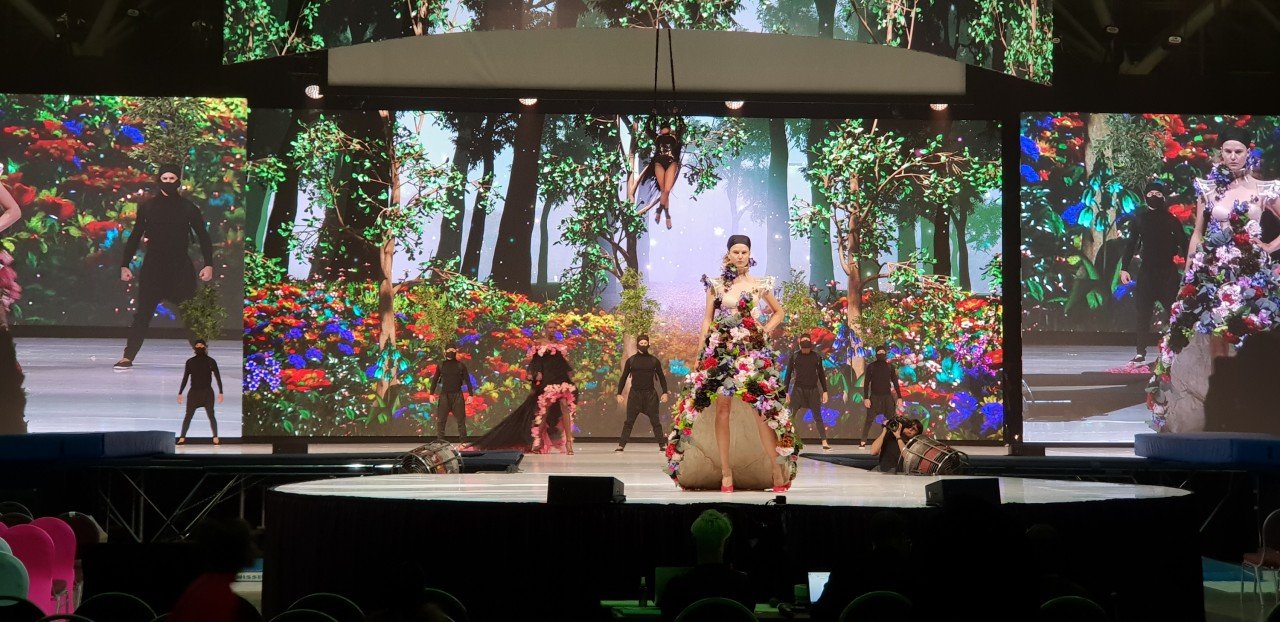Spiro president on the future of events: ‘don’t wait for change, embrace it’

“Change and evolution are the only constants today,” says Jeff Stelmach, global president of Spiro, part of the global event management company GES. “We’ve had to embrace change to make things work for clients instead of letting change happen to them.”
That’s why GES has unveiled its new brand experience agency, Spiro; to keep the company abreast of changes in event management and across evolving consumer demands. Following the pandemic, the events industry changed for good, with a renewed focus on creating omnichannel experiences – and that’s here to stay. Customers are increasingly seeking events and spaces that prioritize connection and provide flexibility.
“We’ve evolved in the way we view experiences and how we create them,” adds Stelmach. “Spiro brings together our collective abilities, legacy of excellence, and global power to develop integrated solutions for our clients.”
GES realized pretty early on that life – and events in particular – wasn’t going to return to where it was pre-pandemic, so its Spiro offering allows marketers to hold events anywhere their audience is without having to compromise on networking opportunities, redefining what it means to come together.
Here, now, somewhere else or later?
Spiro was forged out of a need to change how events were traditionally run. Spiro sees in-person, virtual and hybrid events as equal opportunities for immersive, interactive storytelling and loyalty-building for brands with a capacity for conducting different sorts of events at scale globally.
The pandemic shifted the collective understanding of what constitutes an event, with more people opting to attend events digitally during the height of lockdown. Having greater flexibility and autonomy around how people attended events complimented growing interest in establishing a better work-life balance.
“Pre-pandemic, an event was a gathering of people with shared interests in a specific location, at a specific time,” says Stelmach. “Now, events and experiences exist beyond time and channels. We now meet, share, and learn across multiple mediums and spaces, because how people choose to engage with, show up for, and consume experiences has changed. An event or experience can be here, now, somewhere else, or later.”
The ‘new now’ reality
It’s important to create experiences that restore choice to event attendees and provide them with the option to consume content in a way that suits them at a time that’s convenient.
Stelmach adds: “Spiro is creating experiences that meet audiences where they are, with the global resources and structure to help industries and brands evolve into our ‘new now’ reality.”
Spiro is designed around a proprietary system that redefines how experiences are conceived, created, delivered, managed, monetized, and quantified. The process is known as community-centered experience design (CCXD), which maps out how economic, cultural, emotional, and behavioral shifts occur in event spaces across services. This provides brands with a clearer idea of what consumers want and how to cater to them.
Embracing all real life (ARL)
Spiro’s ability to tap into consumer needs and provide options that fit their criteria, while accepting their habits will inevitability change, is pioneering.
“Foremost is our concept of ‘there·ness,’ and how we design experiences that meet audiences where they are,” says Stelmach. “All of the new ways that empower us to attend events and experiences mean individuals can now decide what that means to them – which is relative to our individual preferences and choices.”
Prior to the pandemic, the possibility of pivoting to digital was a much-discussed conversation topic, but it wasn’t until consumers had to change their habits that interacting in this way became a possibility.
“We now effortlessly toggle between digital and physical spaces,” says Stelmach. “We live in a new space which we have to embrace. In the new now, we are together and remote; asynchronous and live. We call it all real life (ARL), where we can engage with experiences regardless of time, place, space, and medium.”
Adopting a medium and channel agonistic approach to events feeds into the current era of personalization and tailored experiences, but Spiro’s commitment to providing community through its CCXD allows for interactions to occur even after meetings are officially over.
Coming out stronger
The pandemic proved testing for the events industry – something Stelmach believes was one of the most impacted industries.
“Remote work, resource strain, financial belt tightening, and overwhelming uncertainty created stress and anxiety for everyone,” he says. “Those challenges were compounded by limiting our most effective coping mechanisms – in-person teamwork and co-worker support.”
Through regular feedback with his own employees during the pandemic, Stelmach realized the need for streamlining processes and considering individuals on both a professional and personal level.
Spiro was launched “as a strategy, to not only survive the pandemic, but to come out of it as a stronger world-class marketing solutions agency.”
Hybrid events are here to stay – but GES’s new Spiro offering recognizes the importance of evolving its propositions to continue meeting customers’ needs.
“We are not waiting for an ‘old normal’ to return or looking at hybrid event execution as an inconvenience,” says Stelmach. “It is a way to meet our clients and their customers where they are, by it offering a new set of monetization possibilities and approaches. This is the future.”
The future of meaningful connections
As technology continues to develop, Stelmach predicts so too will Spiro’s prowess, particularly in the way businesses can interact and connections can meet.
“Spiro will continue to change the way we engage,” says Stelmach. “What’s most important is to not lose sight of our purpose: people attend events and experiences, fundamentally, to join communities.”
Making meaningful connections at events plays a powerful and purposeful role. Event attendees seek to enjoy moments within event spaces and build their networks – something Spiro provides through its flexible and tailored offering.
Stelmach concludes: “We intend to create immersive moments so impactful that they expand into ongoing micro-experiences and robust contiguous communities.”




